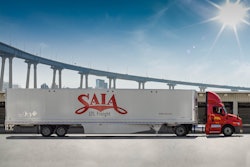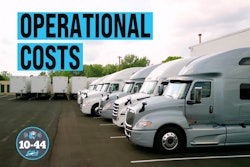It seems like an imaginative plot line for a Tom Clancy thriller: a single line of software code disrupts the world economy. And yet it’s real. The recent travails associated with a faulty CrowdStrike software update to Microsoft-based systems highlight how single-point failures can inordinately impact major sectors of our world. This is just the most recent example.
In agriculture, a focus on a single crop is often called a monoculture. An example might be Midwest corn crops all based on the same corn seed. Or in the Northwest, replanting logged tree forests where all the trees are the same species. In the past, look at Ireland’s experience with the potato blight. Monocultures tend to increase risk from pestilence and unexpected environmental challenges.
Yet we gravitate toward them like bees to flowers. Look at the market share of computer operating systems in the world. One source I found states Windows has 71% of the world’s market. Google reportedly has more than 90% of the world’s search engine market share. Facebook has more than 70% market share of social media.
The U.S. likes to tout that it is a free market operating on the principle of choice, yet we seem to gravitate to the same products. That trend introduces new risks.
Fleets care about resilience. They need to plan for the unexpected hurricane, tornado, earthquake, fire, snowstorm, industry labor strike, etc. In 2021, a single grounded container ship shut down the Suez Canal. In 2024, a single ship closed the port of Baltimore and has extensively rerouted the transport system. But even those challenges tend to be isolated events, limited to specific regions.
Fleets need to think bigger.
Are they also thinking about how a single-point failure in an operating system could bring their entire fleet to a halt? Let’s say their new purchase of factory fresh trucks replacing their entire fleet has a software glitch that requires all of these trucks to stand down for repair? Several recent OEM hardware and software recalls have requested parking the trucks until they are repaired. Let’s say the electronic logging device has a software glitch that compromises the integrity of all of the fleet’s vehicles. What does the fleet do? What if the fleet’s billing system has a problem?
More than 70% of freight in north America is hauled by trucks. Are there any systems common to all trucks that could fail and stop freight movement? What about telemetry systems? ELDs? Credit cards? Real potential risks exist.
We are gravitating more and more to a world where single-point failures may have outsized ramifications. Compounding these risks is the fact that potential nefarious bad players can intentionally create these failures.
What if your business management systems are down? What if your tracking systems are not functioning? What if your billing systems can’t work? What if the load board is frozen?
Fleets need to continually ask themselves, “What if this happens?” That question should start a serious discussion on planning for resilience. Today’s reality is that the unthinkable is happening more and more often.
Ignorance is neither bliss nor profitable.
A popular factoid is that some military air crews in World War II and Vietnam carried gold in what were called emergency barter kits. Planners assumed downed pilots might need to negotiate to aid in their return to safety. Military planners could not plan for every contingency, but they expected planes would go down, so the military armed the pilots with some key tools to help them innovate through the challenges.
What do today’s freight fleets have in their own survival kits for weathering their unexpected challenges?












